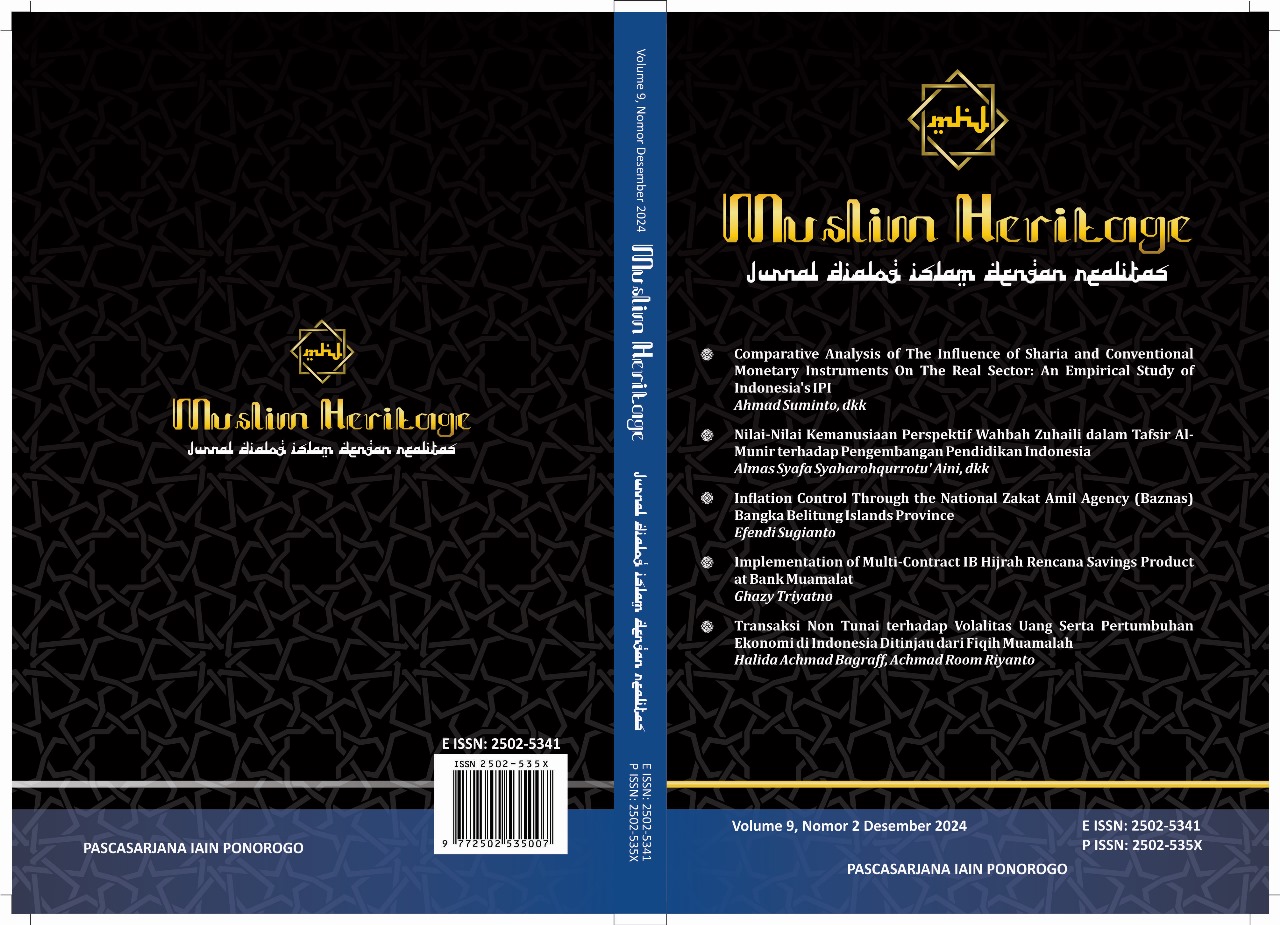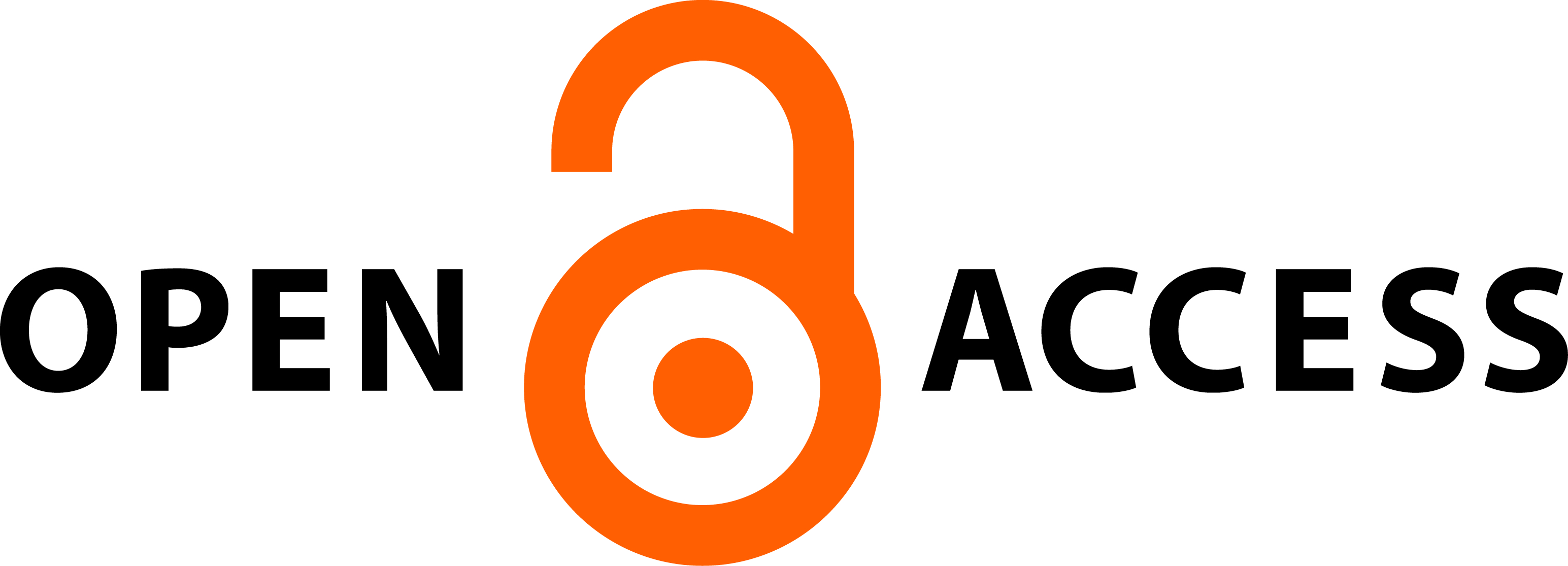Comparative Analysis of The Influence of Sharia and Conventional Monetary Instruments on The Real Sector: An Empirical Study of Indonesia's IPI
DOI:
https://doi.org/10.21154/muslimheritage.v9i2.8892Abstract
Abstract
Indonesia implements a dual monetary policy system, namely conventional and sharia systems that run side by side. The conventional system is a system of interest, while the Sharia system is a system of profit-sharing. The role of the monetary sector in Indonesia's economic growth is very important by minimizing transaction costs or information in financial markets. To ensure the smooth flow of economic activities and enhance the productivity of individuals in the production of goods and services in the real sector. The purpose of this study is to determine the influence of Islamic and conventional monetary instruments on the real sector. This study uses quantitative methods with an Autoregressive Distributed Lag (ARDL) estimation model with the Industrial Production Index (IPI) as the dependent variable. Bank Indonesia Sharia Certificates (SBIS), Sharia Interbank Money Market (PUAS) and financing as independent variables of Islamic monetary instruments, while Bank Indonesia Certificates (SBI), Interbank Money Market (PUAB) and credit as independent variables of conventional monetary instruments. The results of this study show that Islamic and conventional monetary instruments as a whole affect the Industrial Production Index (IPI) as a real sector with an influence of 77% on Islamic monetary instruments and 45% on conventional monetary instruments. In this study, the variables that affect IPI are SBIS, PUAS, financing and interbank while SBI and credit variables do not affect IPI.
Abstrak
Indonesia menerapkan sistem kebijakan moneter ganda yaitu sistem konvensional dan syariah yang berjalan berdampingan. Penerapan pada sistem konvensional dengan sistem bunga sedangkan pada sistem syariah menganut sistem bagi hasil. Peran sektor moneter pada pertumbuhan ekonomi Indonesia sangatlah penting dengan meminimalisir biaya transaksi ataupun informasi di pasar keuangan. Sehingga kegiatan ekonomi berjalan lancar dan dapat meningkatkan produktifitas masyarakat dalam menghasilkan barang dan jasa di sektor riil. Tujuan penelitian ini untuk mengetahui pengaruh dari instrumen moneter syariah dan konvensional terhadap sektor riil. Penelitian ini menggunakan metode kuantitatif dengan model estimasi Autoregressive Distributed Lag (ARDL) dengan Indeks Produksi Industri (IPI) sebagai variabel dependen. Sertifikat Bank Indonesia Syariah (SBIS), Pasar Uang Antar Bank Syariah (PUAS) dan pembiayaan sebagai variabel independen dari instrumen moneter syariah, sedangkan Sertifikat Bank Indonesia (SBI), Pasar Uang Antar Bank (PUAB) dan kredit sebagai variabel independen dari instrumen moneter konvensional. Hasil dari penelitian ini menunjukkan bahwa instrumen moneter syariah dan konvensional secara keseluruhan berpengaruh terhadap Indeks Produksi Industri (IPI) sebagai sektor riil dengan pengaruh sebesar 77% pada instrumen moneter syariah dan 45% pada instrumen moneter konvensional. Dalam penelitian ini, variabel yang berpengaruh terhadap IPI adalah SBIS, PUAS, pembiayaan dan PUAB sedangkan variabel SBI dan kredit tidak berpengaruh terhadap IPI.
Keywords: Sharia Monetary; Conventional Monetary; Real Sector and Industrial Production Inde
Downloads
Published
Issue
Section
License

This work is licensed under a Creative Commons Attribution-NonCommercial 4.0 International License.
Requirements to be met by the author as follows:
- Author storing copyright and grant the journal right of first publication manuscripts simultaneously with licensed under the Creative Commons Attribution License that allows others to share the work with a statement of the work's authorship and initial publication in this journal.
- Authors can enter into the preparation of additional contractual separately for non-exclusive distribution of a rich version of the journal issue (eg:post it to an institutional repository or publish it in a book), with the recognition of initial publication in this journal.
- Authors are allowed and encouraged to post their work online (eg, in institutional repositories or on their website) prior to and during the submission process, because it can lead to productive exchanges, as well as citations earlier and more severe than published works. (see The Effect of Open Access).















